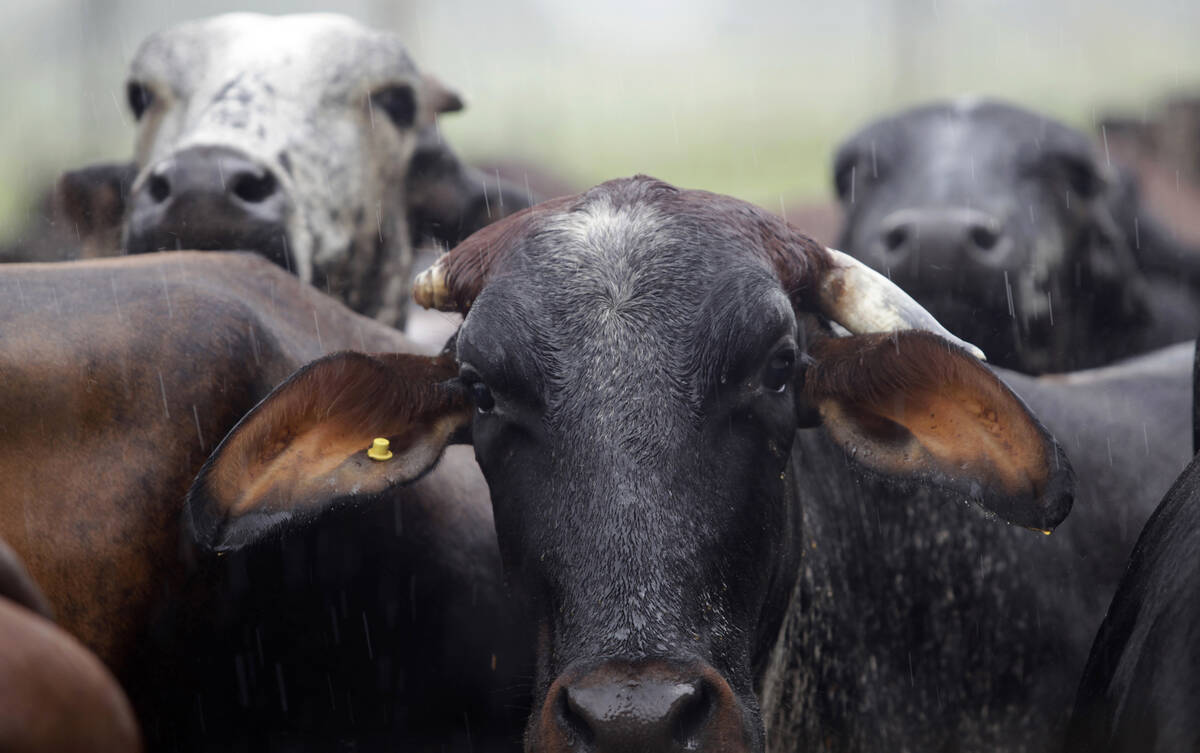For a retired thoroughbred like Demi, every day at Horse Haven Farms is like a visit to the spa.
A successful racehorse cum show jumper, Demi had developed an attitude problem.
He was banished to the100-acre Horse Haven at the edge of Calgary city limits this spring. Under the care of horse trainer Lloyd Ray, the root of the problem was soon discovered.
The big bay had an aching back with vertebrae out of place. Every time a saddle went on, he went crazy with pain.
Read Also

Global meat packer prepares for cattle shortage
Brazilian meat packer JBS is preparing for a likely shift in the country’s cattle cycle that could lead to reduced availability of animals for slaughter next year.
“If my back was that sore, I would have had an attitude problem, too,” said Ray, who with his wife Carol runs the haven for retired, abused and unwanted horses.
Daily sessions with horse chiropractor Julie Bridge relieved Demi’s backaches and Demi will soon be ready for a new lease on life.
Demi is one of Horse Haven’s success stories. The non-profit society, which started accepting horses in April, can take up to 100 horses, which are either put out to pasture or given medical attention for bad teeth, damaged legs or sore backs.
“A lot of behavior problems are health problems,” Ray said.
“They’re hurting somewhere.”
Others arrive half starved because of ignored toothaches or because they cannot eat properly. Dental technician Cavan McMullan donates his time at the farm to help fix these problems.
The Rays want to see some of the horses rehabilitated to the point where they can be “relocated” in a new job. People who acquire rehabilitated horses don’t actually own them. They make a tax deductible donation to the farm and bring the horse home, but it remains the property of Horse Haven Farms.
“We won’t give a horse just to anybody who drives through the driveway,” said Ray.
“We relocate a horse to a caregiver. You can keep the horse but you have to look after it properly.”
The horses cannot be resold or shipped to slaughter.
A horse trainer who has worked with everything from driving teams to thoroughbreds, Ray had been thinking about opening such a facility for 10 years. The opportunity to buy a former horse farm arose last December and now the Rays are seeking donations of time and money to rebuild fences, buy feed and pay farrier and veterinarian bills.
“You’d need to win an awfully big lottery to keep this place running on your own.”
The problem of unwanted horses has grown in recent years along with the explosion in horse ownership.
Unfortunately, not everyone knows how to look after horses and sometimes the animals are sent to slaughter by disappointed and na•ve owners.
“Not enough people want to do the whole job,” said equine kinetics practitioner Larry Jones.
“They’re just flash and dash.
Thirty horses currently live at Horse Haven. While some came for rehab work or to foal, many need tender loving care and a new home.
Burger Boy is one of them.
A young pony owned by an 11-year-old girl, he was constantly running away. The girl sent Horse Haven an impassioned e-mail asking for help because her father threatened to turn the horse into hamburger.
Burger Boy was sent to Horse Haven and tamed. Now he needs a new home.
A racehorse named Little Guy with lifetime track earnings of $180,000 arrived at the farm because of an injured ankle. His future looked grim, but with considerable physiotherapy the ankle is good as new.
“Now that we’ve got him sound and solid, he can outrun anything on the farm,” said Ray.
Little Guy’s new career will be as a carriage horse.
“He and I will retire together.”
Speedy recovery
There is also a geriatric ward where the Rays keep horses who are teetering past 30 years. A 34-year-old mare arrived at the farm so emaciated Ray could sink his fingers into her ribs past his first knuckle. A few weeks later going on a proper diet, she is glossy coated and thinks she is the matriarch of the pasture.
Ray admits that he wrote off some horses while working as a horse trainer because he did not have time or did not understand their problems. His experiences in the last few months have shown him there is no such thing as a lost cause.
“These horses are teaching me something new everyday.”















